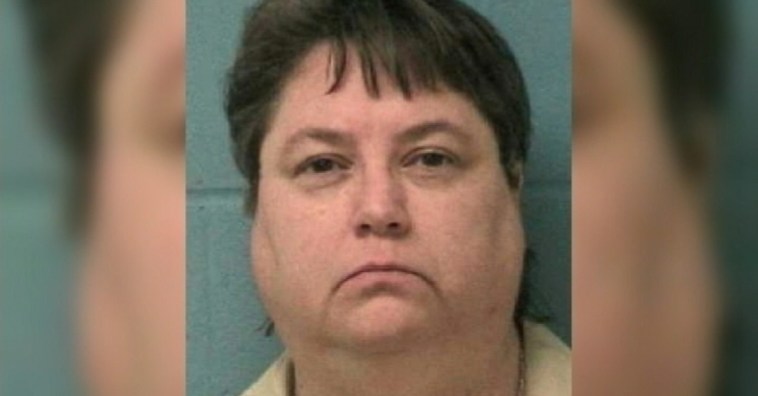UPDATE: After several courts, including the U.S. Supreme Court, denied a series of last-minute, late-night appeals Tuesday, Kelly Gissendaner was executed early Wednesday for her role in the murder of her husband in 1997. The Georgia Department of Corrections said her death by lethal injection came at 12:21 a.m.
Videos By Rare
ORIGINAL STORY: Kelly Gissendaner, convicted of murder and facing death tonight, has eaten her last meal. She’s had six volunteers visit. A chaplain has spent time with her.
Now, the minutes are dwindling to a few in the 47-year-old’s life. The execution is scheduled to take place about 7 p.m.
Today has been a remarkable one in what may be Gissendaner’s last day on earth. Earlier, the state Board of Paroles and Pardons declined her lawyers’ last-ditch request for clemency. Even a letter from an emissary for Pope Francis didn’t sway the board; nor did a plea from Wilton Gregory, archbishop of the Catholic Archdiocese of Atlanta.
Late this afternoon the panel announced: the execution would go on as planned.
If the execution goes forward, this will be the first time Georgia has executed a woman since 1945. It also may be the first execution to take place in America since Pope Francis called on Congress to abolish capital punishment. He made that plea Thursday during a six-day visit to this country.
Her execution also would signal the resumption of Georgia executions. They halted temporarily on March 2, when state officials postponed Gissendaner’s execution because Pentobarbital, a sedative needed to end Gissendaner’s life, was cloudy.
Gissendaner committed her crime in 1997. The facts aren’t in dispute: She persuaded her lover, Gregory Owen, to kill her husband, Douglas Gissendaner. Owen knocked him unconscious, then repeatedly stabbed him in the neck with a knife. This took place in a remote, wooded spot.
She reported him missing the next day. He remained missing for two weeks until game wardens found his body.
Investigators learned that Gissendaner had a boyfriend. Police tracked him down. He confessed and testified against Gissendaner. He got life with the possibility of parole in 2022.
Gissendaner rejected a similar deal and demanded a trial. Since then, she has been in prison, where her supporters say she found God and has counseled other women inmates in distress. Executing her, they say, would be a travesty.
There are fewer moments left now. A crowd is gathering outside the prison, as they usually do when the state administers its final punishment. Reporters comprise a lot of that crowd, because the Gissendaner story has gone worldwide. But not everyone here is a reporter.
Gissendaner has supporters, too. Or, perhaps, they’re death-penalty opponents — maybe both. They’re in a roped-off area guarded by a couple of police officers in riot gear, standing firm as posts. They’ve come singly, and in couples, about 35 altogether 30 minutes before the scheduled execution. They’re clustered in a clearing ringed by mature pine trees.
One is Beth King of Roswell. She’s holding a bright pink, hand-lettered placard. “Don’t Replicate the Crime!” it reads. “End the death penalty.”
Executing Gissendaner, said King, would make the state just as guilty as she. “It would be a crime” she said, “a state-mandated crime.”
[protected-iframe id=”6428e145c8a35b1163fe8408659bd220-46934866-80977388″ info=”https://w.graphiq.com/w/jue8eM3CHVH” ]
[protected-iframe id=”567afa090f881a03c95498e7b29cfb15-46934866-80977388″ info=”https://w.graphiq.com/w/30dq3geuZLv” ]

